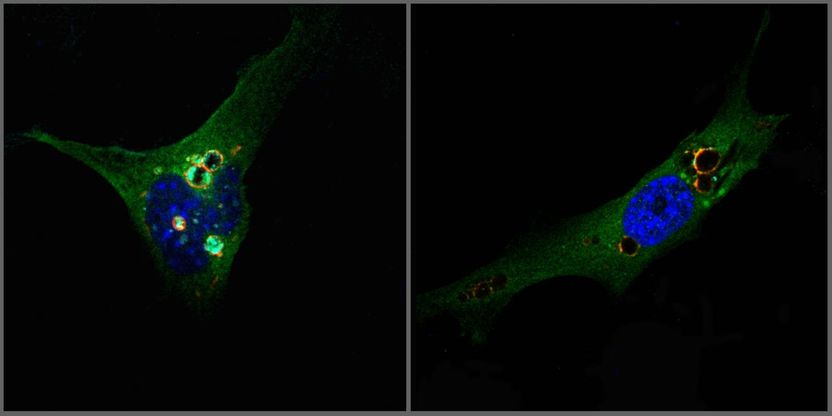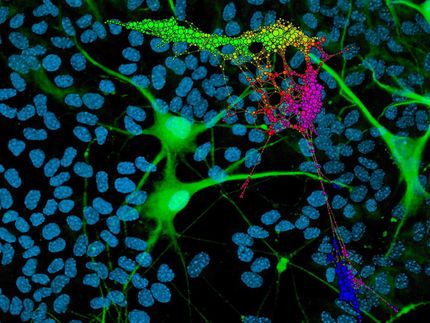Clinical Trial Moves Stem Cell Therapy for ALS Patients One Step Closer to Reality
stem cells are a safe therapy for patients with amyotrophic lateral sclerosis (ALS), according to the results of a recently completed phase 1 clinical trial. Details of the trial, conducted by scientists in South Korea, are published in STEM CELLS Translational Medicine.
The trial was the next phase of research into stem cells and ALS being conducted at Hanyang University and Corestem Inc., both in Seoul, and Inje University College of Medicine in Busan. ALS is a rapidly progressive, invariably fatal neurological disease that attacks the motor nerve cells (neurons) responsible for controlling voluntary muscles. The HU team’s phase 1 trial had two goals: to test whether stem cells were a safe treatment for ALS, and to learn whether two injections of the cells might prove more beneficial than a single injection.
“In our pilot study we followed a group of ALS patients for six months after giving them a single injection of mesenchymal stromal cells (MSCs) and found the treatment to be both safe and feasible,” said the trial’s co-leader, Seung Hyun Kim, Ph.D., director of Hanyang University (HU) Hospital’s Cell Therapy Center and professor in HU’s Department of Neurology. “In this next phase, we wanted to see if two injections would prove even more beneficial, and we wanted to follow the participants for a longer period of time to determine if the treatment proved safe for a longer term than in the pilot phase.”
MSCs, which are found in bone marrow, generate bone, cartilage and fat cells that support the formation of blood and fibrous connective tissue. They have emerged as a potentially promising treatment for ALS due to their ability to regenerate lost or damaged cells and for their anti-inflammatory capabilities.
Eight patients with definite or probable ALS were enrolled in the new study, although one died shortly after enrollment. After a three-month lead-in period, MSCs were isolated from each patient’s bone marrow two times, at an interval of 26 days, with each group of MSCs then expanded in the lab for 28 days before being injected into the donor patients. The seven patients received intrathecal (cerebrospinal fluid space) injections of their own MSCs in two separate treatments given 26 days apart. Dr. Kim said, “Intrathecal injections have the advantages of not only avoiding invasive surgical technique that had been done in the previous other group’s study, but also it’s easy to do repeated procedures without harm to the patients.”
Their ALS functional status and safety was then evaluated for 12 months after the first injection.
“No serious adverse events were observed during this period,” reported co-leader Ki-Wook Oh, M.D., also of HU’s neurology department. “Additionally, there was no advancement in ALS symptoms in any of the patients during the 12-month period.”
Dr. Kim added, “This study shows that stem cells as a therapeutic approach for ALS are feasible and well-tolerated at least for 12 months, supporting the need for a late-stage clinical trial to examine their in-depth safety, biological effects and efficacy. Randomized, semi-double blind controlled phase 2 clinical data on 72 ALS patients, which recently was submitted to the Korean FDA, will be released in the near future.”
“The pilot study and this most recent study follow successful studies in mice showing prolonged lifespan and slowed disease progression,” said Anthony Atala, M.D., Editor-in-Chief of STEM CELLS Translational Medicine and director of the Wake Forest Institute for Regenerative Medicine. “We look forward to seeing the results of the phase II trial.”
Original publication
“Phase I Trial of Repeated Intrathecal Autologous Bone Marrow-derived Mesenchymal Stromal Cells in Amyotrophic Lateral Sclerosis."; STEM CELLS Translational Medicine.
Original publication
“Phase I Trial of Repeated Intrathecal Autologous Bone Marrow-derived Mesenchymal Stromal Cells in Amyotrophic Lateral Sclerosis."; STEM CELLS Translational Medicine.
Topics
Organizations
Other news from the department science

Get the life science industry in your inbox
By submitting this form you agree that LUMITOS AG will send you the newsletter(s) selected above by email. Your data will not be passed on to third parties. Your data will be stored and processed in accordance with our data protection regulations. LUMITOS may contact you by email for the purpose of advertising or market and opinion surveys. You can revoke your consent at any time without giving reasons to LUMITOS AG, Ernst-Augustin-Str. 2, 12489 Berlin, Germany or by e-mail at revoke@lumitos.com with effect for the future. In addition, each email contains a link to unsubscribe from the corresponding newsletter.
More news from our other portals
Last viewed contents
US Patents Granted for ARIUS Antibodies
S*BIO Initiates Phase 2 Clinical Trial of its Novel JAK2 Inhibitor SB1518 in North America for Advanced Lymphoid Malignancies
Chemokine Therapeutics Announces Change in Management
Probiodrug Announces Supervisory Board Changes - Appointment of Claus Braestrup as Chairman of the Supervisory Board





















































